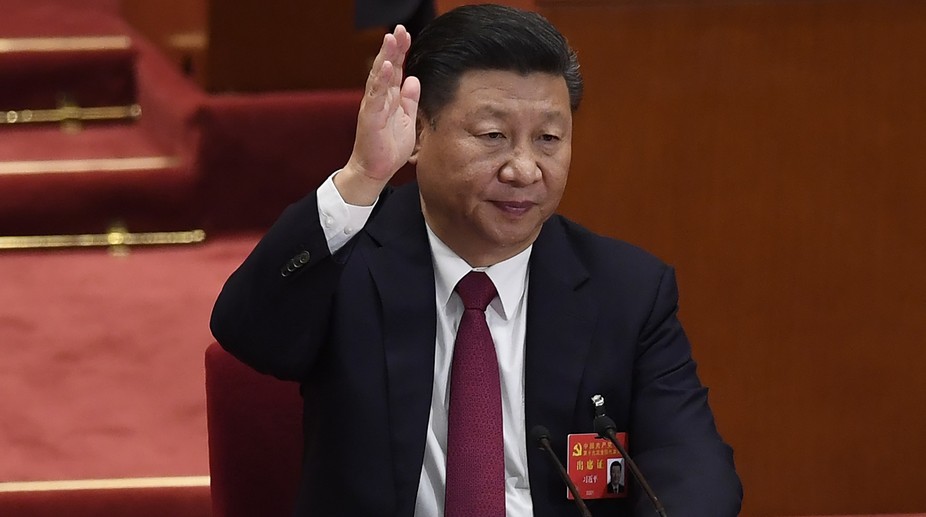China’s Confidence
In the complex theatre of global politics, Xi Jinping’s China stands as a self-assured protagonist, asserting its vision of a multipolar world with a conviction that borders on swagger.

Chinese President Xi Jinping (Photo: AFP)
China’s legislative body, the National People’s Congress (NPC), on Saturday unanimously approved extending Xi Jinping’s term to a second mandate after a plenary session vote at the Great Hall of the People in Beijing.
The development has come days after the China’s rubber-stamp parliament scrapped the two-term rule for the Presidency and allowed Jinping to have a life-long tenure.
The vote means Xi will remain in power as the country’s president until 2023, having taken office in 2013, reports Efe news.
Advertisement
Xi was also elected as the head of the powerful Central Military Commission, the overall high command of the Chinese military.
Xi, 64, who thanks to a constitutional reform approved earlier this week by the NPC will be eligible to rule beyond 2023, was re-appointed with 2,970 votes in favour, with none against and no abstentions.
On March 11, over 2900 deputies of the NPC had voted for the constitutional amendment for removing the two-term limit for President and Vice President proposed by the ruling Communist Party of China, (CPC).
China’s parliament also voted in Xi’s former anti-corruption chief, Wang Qishan, to the role of vice president.
While Xi was elected unanimously by the deputies, Wang was elected with 2969, one vote against. Wang is the most feared official in China as he carried out the anti-corruption campaign for the past five years initiated by Xi in which over 1.5 million officials including over 100 ministers and top generals were punished making it the biggest such crackdown in China’s recent history.
Saturday’s plenary session also saw the approval of a wide ranging series of reforms of the country’s government, which will feature restructuring and changes to 11 ministries.
These include the establishment of a ministry responsible for the affairs of People’s Liberation Army veterans, as well as the creation of a natural disaster management and emergency response agency.
(With agencies inputs)
Advertisement